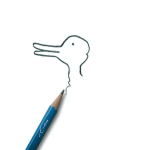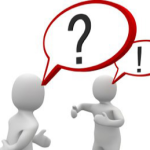The introduction of the internet and of social media has drastically changed our information position. We live in a time of ‘truth decay’: the distinction between opinions and facts is blurred, opinions have more impact than facts, and sources of factual information are increasingly distrusted. Since philosophers love truth, they deplore these tendencies. But what can … [Read more...] about The Epistemic Quest for Truth: Introduction to epistemology
Philosophy
The Modern and the Postmodern (Part 1)
This course examines how the idea of "the modern" develops at the end of the 18th century in European philosophy and literature, and how being modern (or progressive, or hip) became one of the crucial criteria for understanding and evaluating cultural change. Are we still in modernity, or have we moved beyond the modern to the postmodern? … [Read more...] about The Modern and the Postmodern (Part 1)
Philosophy, Science and Religion: Religion and Science
Philosophy, Science and Religion mark three of the most fundamental modes of thinking about the world and our place in it. Are these modes incompatible? Put another way: is the intellectually responsible thing to do to ‘pick sides’ and identify with one of these approaches at the exclusion of others? Or, are they complementary or mutually supportive? As is typical of … [Read more...] about Philosophy, Science and Religion: Religion and Science
Designing the Future of Work
The workplace of tomorrow is an uncertain place. We live in a rapidly changing world, and design innovations such as artificial intelligence (AI), robotics, and big data are rapidly changing the fundamental nature of how we live and work. As these technologies continue to evolve at an exponential rate - it is becoming critical to understand their impact on contemporary work … [Read more...] about Designing the Future of Work
Think Again II: How to Reason Deductively
Deductive arguments are supposed to be valid in the sense that the premises guarantee that the conclusion is true. In this course, you will learn how to use truth-tables and Venn diagrams to represent the information contained in the premises and conclusion of an argument so that you can determine whether or not the argument is deductively valid. Suggested Readings: Students … [Read more...] about Think Again II: How to Reason Deductively






